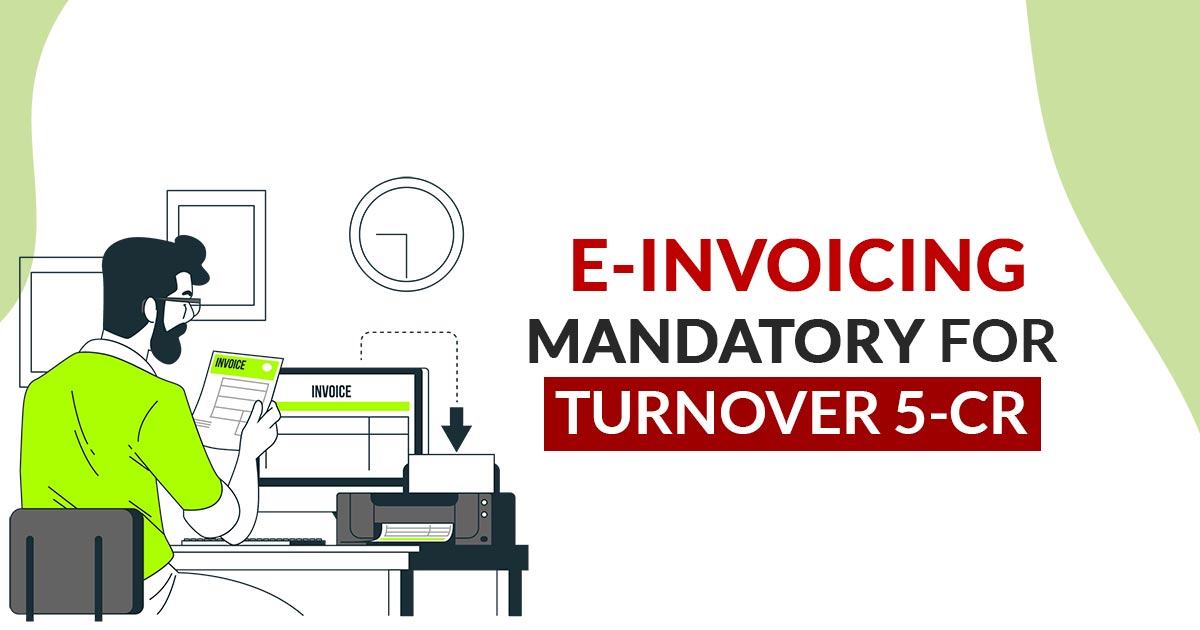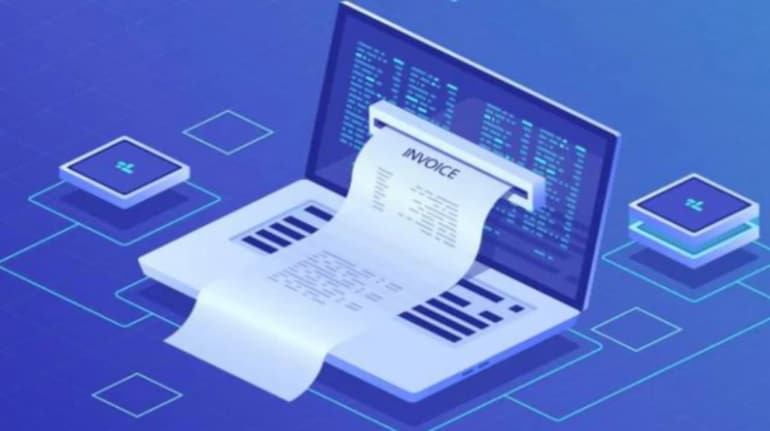Powering Business Transactions: E-Invoicing Becomes Mandatory for Businesses with over ₹5-Crore Turnover from Aug 1, 2023

Powering Business Transactions: E-Invoicing Becomes Mandatory for Businesses with over ₹5-Crore Turnover from Aug 1, 2023
In a major move towards digital transformation and streamlining the tax ecosystem, the Indian government has taken a decisive step by making e-invoicing mandatory for businesses with an annual turnover of over ₹5 crore. Effective from August 1, this groundbreaking initiative is set to revolutionize the way businesses conduct transactions, ensuring greater transparency, efficiency, and compliance across the board.

The introduction of e-invoicing comes as part of the government’s ongoing efforts to bring the Indian economy into the digital age, encouraging businesses to embrace advanced technology and modern practices. With this new mandate, eligible businesses must generate all their invoices electronically, eliminating the traditional paper-based invoicing system that has long been in place.
What is E-Invoicing, and How Does it Work?
E-invoicing, short for electronic invoicing, is a system where invoices are generated, validated, and exchanged digitally between businesses and their customers. This process is facilitated through the government’s dedicated e-invoicing portal, where invoices are authenticated in real-time, preventing any potential tampering or manipulation.
Businesses will now have to upload invoice details to the e-invoicing portal in a specified format called the e-invoice schema. The portal will then generate a unique Invoice Reference Number (IRN) along with a Quick Response (QR) code, which will be embedded in the electronic invoice. These details will be crucial for tracking and verifying transactions.
The Advantages of E-Invoicing
The move towards e-invoicing is expected to bring forth numerous advantages, benefiting businesses, the government, and consumers alike.
1. Enhanced Efficiency: E-invoicing automates the entire invoicing process, reducing manual interventions and the chances of human errors. This leads to faster processing times and greater efficiency in overall business operations.
2. Cost Savings: By eliminating the need for physical paper, printing, and postage, businesses can significantly reduce their operational costs associated with invoicing.
3. Real-time Validation: The government’s e-invoicing portal validates invoice details in real-time, minimizing the risk of tax evasion and ensuring accuracy in transactions.
4. Faster Payment Processing: E-invoices are likely to expedite payment processing, reducing delays and improving cash flow for businesses.
5. Improved Compliance: The digital nature of e-invoices makes it easier for businesses to adhere to tax regulations and reporting requirements, reducing the likelihood of non-compliance.
6. Environmentally Friendly: Going paperless with e-invoicing contributes to the conservation of natural resources, reducing the environmental impact of traditional paper-based invoicing.
Impact on Businesses and the Economy
While e-invoicing promises a plethora of benefits, businesses may initially face some challenges in adapting to the new system. Smaller enterprises, in particular, might encounter difficulties in transitioning from conventional practices to digital invoicing. Therefore, it becomes essential for the government to provide adequate support and training to ensure a smooth shift for all businesses.
On the broader economic front, the mandatory adoption of e-invoicing is expected to bring about positive changes. The move will undoubtedly lead to increased transparency in business transactions, curbing tax evasion and black money circulation. As the tax collection system becomes more robust, the government will likely witness an upswing in tax revenues, which can be reinvested in various developmental projects.
The implementation of e-invoicing also aligns with the government’s vision of a cashless economy. As more transactions move towards digital platforms, there will be a boost in digital payment channels, promoting financial inclusion and reducing reliance on cash transactions.

Government’s Role in Ensuring Smooth Transition
Recognizing the significance of a seamless transition, the government has been actively engaged in creating awareness and providing support to businesses. Prior to the implementation, extensive outreach programs were conducted to educate stakeholders about the e-invoicing process, its benefits, and the steps required to comply with the new regulations.
Additionally, the government has introduced a phased approach to the implementation of e-invoicing. Initially, businesses with a turnover of over ₹500 crore were mandated to comply with e-invoicing from January 2021, followed by those with a turnover of over ₹100 crore from April 2021. Now, with the August 1 deadline, businesses with an annual turnover of over ₹5 crore will come under the purview of e-invoicing.
By taking a gradual approach, the government aims to provide ample time for businesses to familiarize themselves with the e-invoicing process, address any concerns, and make necessary adjustments to their existing systems.

Conclusion
The implementation of e-invoicing for businesses with an annual turnover of over ₹5 crore from August 1 marks a significant step forward in India’s digitization journey. By promoting digitalization and streamlining the tax system, the government aims to create a more efficient and transparent business environment.
As businesses adapt to this new norm, the advantages of e-invoicing are likely to manifest in increased productivity, cost savings, and improved compliance. Furthermore, the move is expected to drive India’s economy towards a more sustainable and inclusive future.
As the government and businesses collaborate to smoothen the transition, it is essential for all stakeholders to embrace the change positively, recognizing the potential for growth and progress that e-invoicing offers. With the power of technology behind them, Indian businesses can pave the way for a prosperous and digitally empowered future.






